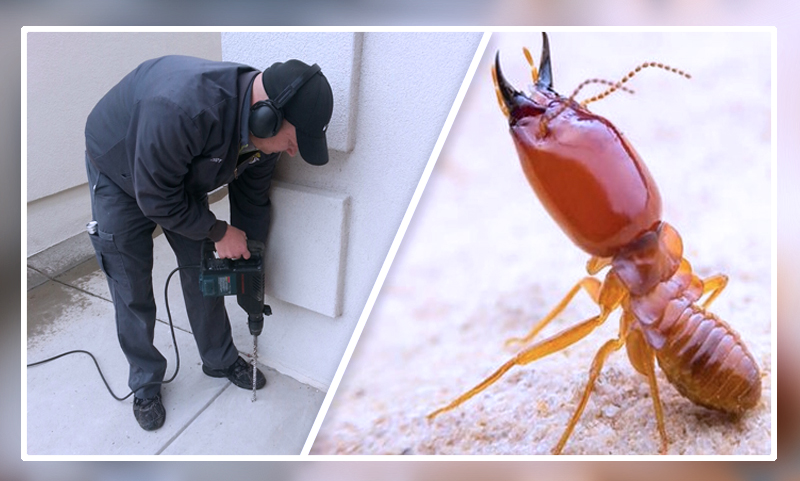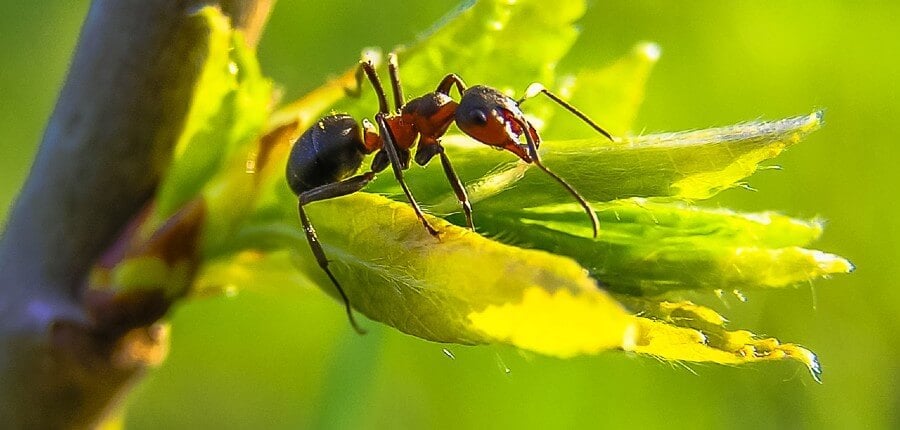Ecological Impact of Bug Control: Harmonizing Effectiveness With Sustainability
The environmental effect of pest control is an essential issue that needs a delicate balance between achieving efficiency in taking care of bugs and making sure sustainability of our environments. As we strive to protect our crops, homes, and health and wellness from the hazards posed by bugs, the techniques we utilize can accidentally hurt the atmosphere. From using harmful chemicals that leak right into our soil and water to the unintentional consequences on non-target types, the effects of standard bug control techniques are significant. There are emerging approaches that offer hope for a more sustainable method to pest management. These remedies not only objective to resolve the prompt parasite issues yet additionally take into consideration the long-term wellness of our planet.
Dangerous Chemicals in Insect Control
The utilization of harmful chemicals in bug control positions considerable environmental and wellness risks that call for mindful consideration and mitigation approaches. Pesticides, pesticides, and herbicides are frequently used to remove bugs, but their extensive application can result in unintended effects. These chemicals can contaminate dirt, water sources, and the air, influencing not just the targeted pests yet likewise useful bugs, wild animals, and humans.

To address these risks, incorporated bug management (IPM) strategies are being advertised as a much more lasting choice. IPM includes a combination of methods such as organic control, environment control, and the targeted use pesticides as a last hotel (ant control conover nc). By taking on an all natural method to pest control, we can reduce the environmental and health effects related to harmful chemicals while effectively handling pest populaces
Effect On Non-Target Species
Considering the unintended effects of insect control approaches, the effect on non-target varieties is an important facet that requires detailed examination. While parasite control actions aim to target certain bugs, other organisms in the ecosystem may be unintentionally impacted. Non-target types, including beneficial pests, birds, creatures, and also plants, can experience indirect or straight damage from pesticide applications or organic control methods.
Chemicals can have sub-lethal or deadly results on non-target species. For instance, pesticides designed to combat a certain bug bug might harm pollinators like or natural predators such as ladybugs. Furthermore, chemical residues can accumulate in the environment, impacting non-target microorganisms in time. Likewise, biological control agents, otherwise species-specific, can present dangers to unintended targets, disrupting the eco-friendly balance.
To alleviate the influence on non-target types, incorporated parasite management (IPM) approaches that stress a holistic method to pest control are advised. These approaches prioritize using eco-friendly practices, lessening injury to helpful organisms while efficiently taking care of pest populations. Carrying out thorough threat analyses and keeping an eye on the end results of insect control efforts are necessary actions in guarding non-target varieties and advertising general ecosystem health and wellness.
Soil and Water Contamination
Unintentional environmental consequences of bug control approaches extend beyond impacting non-target types, with significant effects for dirt and water contamination - termite control. Chemicals, herbicides, and chemical plant foods made use of in parasite control can seep into the soil and pollute groundwater, posing a hazard to both earthbound and marine environments.
Water contamination is another critical issue related to pest control methods. Runoff from farming fields treated with chemicals can lug these chemicals right into neighboring water bodies, influencing water organisms and water top quality. Impurities in water sources can have far-ranging consequences, impacting not just aquatic life but likewise human wellness with the consumption of polluted water or aquatic organisms. To reduce dirt and water contamination from bug control activities, integrated parasite management approaches that focus on sustainability and reduce chemical inputs are crucial.
Air Air Pollution From Chemical Usage
Direct exposure to air-borne chemicals during farming applications positions a substantial worry for air pollution control actions. Additionally, pesticide drift, where chemicals are carried by the wind to unexpected areas, can lead to the contamination of neighboring ecosystems and water bodies.

Strategies for Sustainable Bug Control
In the world of agricultural practices, implementing lasting insect control approaches is paramount for preserving eco-friendly equilibrium and securing crop yields. Sustainable pest control highlights making use of eco-friendly approaches to handle insect populations efficiently while reducing harm to non-target organisms and communities. Integrated Insect Monitoring (IPM) is a commonly taken on technique that combines biological, Check This Out cultural, physical, and chemical control methods to accomplish long-term parasite administration solutions.
Crop turning and diversity are also reliable strategies to disrupt pest life cycles and create less positive conditions for pests to thrive. Eventually, by integrating these lasting insect control techniques, farmers can achieve an equilibrium in between pest management effectiveness and ecological stewardship.
Verdict
To conclude, the environmental effect of pest control approaches need to be very carefully considered to balance performance with sustainability. Damaging chemicals made use of in insect control can bring about dirt and water contamination, air contamination, and damage non-target species - ant control services. It is critical to execute lasting pest control strategies to minimize these adverse effects on the environment and promote a healthier ecosystem for future generations
By adopting an alternative strategy to pest control, we can lessen the environmental and health and wellness effects associated with unsafe chemicals while successfully managing pest populaces.

To mitigate the air contamination created by chemical usage, it is necessary to embrace integrated pest administration strategies that prioritize the use of non-chemical insect control approaches, such as plant turning, all-natural predators, and immune plant varieties. Sustainable parasite control emphasizes the use of environmentally pleasant approaches to manage bug populaces efficiently while decreasing harm to non-target organisms and environments. Integrated Parasite Management (IPM) is an extensively embraced approach that integrates biological, social, physical, and chemical control methods to attain lasting pest monitoring options.